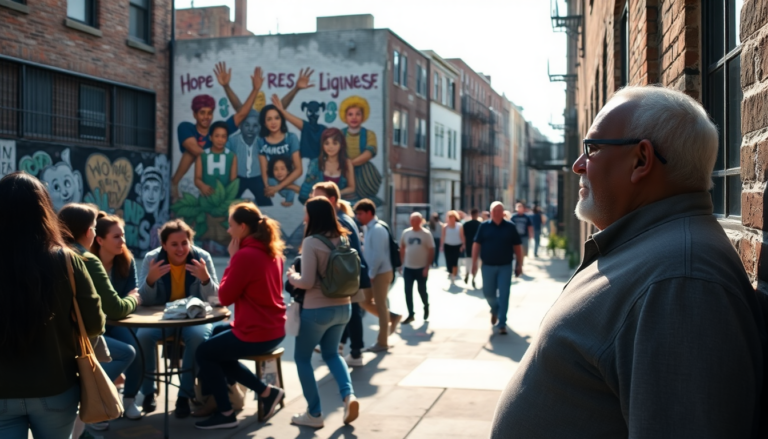Argomenti trattati
Prejudice seeps into many corners of our society, impacting not only individual well-being but also the structural conditions of marginalized communities. Researchers like Colin Li, a PhD student at the University of Toronto, are diving deep into these pressing issues. They explore not just the psychological aspects of prejudice, but also its wider implications. Colin’s work stands out as a powerful blend of personal experience and academic research, offering valuable insights into how prejudice affects our sense of belonging and meaning in life. Have you ever thought about how deeply these issues can touch our everyday lives?
Exploring the Research Landscape on Prejudice
Colin’s research digs into prejudice on both personal and community levels. This dual approach sheds light on how biased attitudes can develop in groups that seem similar on the surface. By looking at ingroup prejudice—where both the perpetrator and victim share the same social identity—Colin uncovers the often-ignored complexities of bias within seemingly uniform groups. Additionally, his focus on regional prejudice seeks to challenge traditional methods used to evaluate these issues, aiming for new approaches that capture the real-life experiences of individuals across different areas. Isn’t it fascinating how our environment shapes our perceptions?
This fresh perspective is crucial as we continue to confront discrimination in our society. Colin’s work not only enhances our understanding of inclusivity and hostility but also offers innovative insights that could inform policies geared towards fostering social harmony and well-being.
The Intersection of Personal Experience and Research
Colin’s path into social psychology wasn’t just a career choice; it was driven by his desire to tackle the injustices he saw growing up. This personal connection to his work is something he emphasizes, urging others in academia to leverage their own experiences as powerful sources of insight. His concept of ‘me-search’—the idea that personal journeys can enrich academic research—pushes against the stigma often attached to this method in scholarly settings. Have you ever considered how your own life experiences could shape your understanding of social issues?
Colin’s dedication to improving measurement equity for LGBTIQ+ individuals in psychological research highlights the critical need for representation in academia. By validating psychological scales tailored to marginalized groups, he strives to ensure that research mirrors the rich diversity of human experiences, ultimately contributing to a fairer society.
Teaching and Mentorship: Shaping Future Researchers
As an educator, Colin champions the importance of practical, hands-on learning in social psychology courses. He recognizes the often stark divide between theory and real-world application and works hard to bridge that gap by equipping students with essential skills in data analysis and research methodologies. By creating a collaborative environment, he inspires students to dive into complex research topics with confidence. What skills do you think are essential for tackling social issues today?
Colin also values mentorship, crediting much of his success to the guidance he received from seasoned professionals. He is committed to offering the same support to his students, highlighting the importance of a supportive community in academia. His experiences at the Society for Personality and Social Psychology (SPSP) conferences have reinforced his belief in the power of networking and collaboration among scholars. After all, isn’t it the connections we make that often lead to the most impactful discoveries?
Conclusion: The Path Forward
In summary, grasping the complex impact of prejudice on marginalized groups is vital for driving social change. Colin Li’s research and personal journey underscore the importance of merging personal narratives with academic inquiry, encouraging future researchers to embrace their own stories as they work to unpack the intricacies of prejudice. Through thoughtful research, teaching, and mentorship, we have the potential to make meaningful strides toward a more inclusive and equitable society. Are you ready to join this journey of understanding and change?

